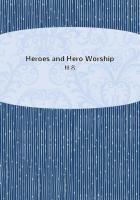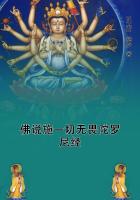"And yet, though we who are left are strangers to one another, we have the same memories of the past, of the same type of mischievous girls and staid teachers, though with different names. The same long, bare halls and stairs, the recitation rooms with the same old blackboards and lumps of chalk taken for generation after generation, I suppose, from the same pit; the dining room, with its pillars inconveniently near some of the tables, with its thick, white crockery and black-handled knives, and viands that never suited us, because, forsooth, we had boxes of delicacies from home, or we had been out to the baker's or confectioner's and bought pies and cocoanut cakes, candy and chewing gum, all forbidden, but that added to the relish. There, too, were the music rooms, with their old, second-hand pianos, some with rattling keys and tinny sound, on which we were supposed to play our scales and exercises for an hour, though we often slyly indulged in the 'Russian March,' 'Napoleon Crossing the Rhine,' or our national airs, when, as slyly, Mr. Powell, our music teacher, a bumptious Englishman, would softly open the door and say in a stern voice; 'Please practice the lesson I just gave you!'
"Our chief delight was to break the rules, but we did not like to be caught at it. As we were forbidden to talk with our neighbors in study hours, I frequently climbed on top of my bureau to talk through a pipe hole with a daughter of Judge Howell of Canandaigua. We often met afterward, laughed and talked over the old days, and kept our friendship bright until the day of her death. Once while rooming with Harriet Hudson, a sister of Mrs. John Willard, I was moved to a very erratic performance. Miss Theresa Lee had rung the bell for retiring, and had taken her rounds, as usual, to see that the lights were out and all was still, when I peeped out of my door, and seeing the bell at the head of the stairs nearby, I gave it one kick and away it went rolling and ringing to the bottom. The halls were instantly filled with teachers and scholars, all in white robes, asking what was the matter. Harriet and I ran around questioning the rest, and what a frolic we had, helter-skelter, up and down stairs, in each other's rooms, pulling the beds to pieces, changing girls' clothes from one room to another, etc., etc. The hall lamps, dimly burning, gave us just light enough for all manner of depredations without our being recognized, hence the unbounded latitude we all felt for mischief. In our whole seminary course朼nd I was there nearly three years杦e never had such a frolic as that night. It took all the teachers to restore order and quiet us down again for the night. No suspicion of any irregularities were ever attached to Harriet and myself. Our standing for scholarship was good, hence we were supposed to reflect all the moralities.
"Though strangers, we have a bond of union in all these memories, of our bright companions, our good teachers, who took us through the pitfalls of logic, rhetoric, philosophy, and the sciences, and of the noble woman who founded the institution, and whose unselfish devotion in the cause of education we are here to celebrate. The name of Emma Willard is dear to all of us; to know her was to love and venerate her. She was not only good and gifted, but she was a beautiful woman. She had a finely developed figure, well-shaped head, classic features, most genial manners, and a profound self-respect (a rare quality in woman), that gave her a dignity truly royal in every position. Traveling in the Old World she was noticed everywhere as a distinguished personage. And all these gifts she dedicated to the earnest purpose of her life, the higher education of women.
"In opening this seminary she could not find young women capable of teaching the higher branches, hence her first necessity was to train herself.
Amos B. Eaton, who was the principal of the Rensselaer Polytechnic School for boys here in Troy, told me Mrs. Willard studied with him every branch he was capable of teaching, and trained a corps of teachers and regular scholars at the same time. She took lessons of the Professor every evening when he had leisure, and studied half the night the branches she was to teach the next day, thus keeping ahead of her classes. Her intense earnestness and mental grasp, the readiness with which she turned from one subject to another, and her retentive memory of every rule and fact he gave her, was a constant surprise to the Professor.
"All her vacation she devoted to training teachers. She was the first to suggest the normal-school system. Remembering her deep interest in the education of women, we can honor her in no more worthy manner than to carry on her special lifework. As we look around at all the educated women assembled here today and try to estimate what each has done in her own sphere of action, the schools founded, the teachers sent forth, the inspiration given to girls in general, through the long chain of influences started by our alma mater, we can form some light estimate of the momentous and far-reaching consequences of Emma Willard's life. We have not her difficulties to overcome, her trials to endure, but the imperative duty is laid on each of us to finish the work she so successfully began. Schools and colleges of a high order are now everywhere open to women, public sentiment welcomes them to whatever career they may desire, and our work is to help worthy girls struggling for a higher education, by founding scholarships in desirable institutions in every State in the Union. The most fitting tribute we can pay to Emma Willard is to aid in the production of a generation of thoroughly educated women.















